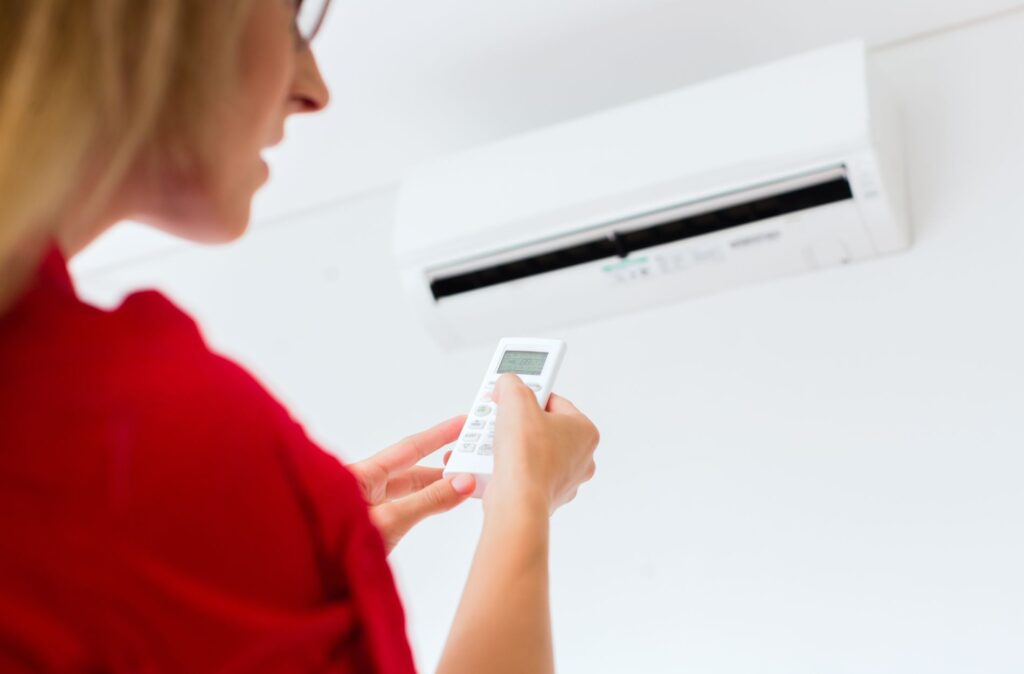Air conditioning systems have become essential components of modern homes, providing much-needed cooling and comfort during the hot summer months. However, various myths and misconceptions about air conditioning units abound, often leading to confusion and misinformation. Whether it’s about energy consumption, thermostat settings, or the effects of air conditioning on health, it’s essential to separate fact from fiction to ensure optimal home comfort and energy efficiency.
B.L.R. Heating & Air will address and debunk some of the most common myths surrounding air conditioning systems, providing accurate information to help you make informed decisions about your AC unit. From debunking misconceptions about energy consumption to understanding the best thermostat settings for comfort and efficiency, our professionals are here to guide you through the nuances of air conditioner operation and maintenance.
Myth 1: Turning Down the Thermostat Lowers Cooling Time
One common misconception about air conditioning is that setting the thermostat to a lower temperature will cool your home faster. In reality, lowering the thermostat below the desired temperature does not speed up the cooling process, as most AC units work at a constant rate until they reach the set temperature. Instead, to efficiently cool your home, set the thermostat to your desired temperature, and your air conditioning system will work to achieve it.
Tips for Proper Thermostat Settings:
To maximize your air conditioner’s efficiency and your home’s comfort, consider the following tips for setting your thermostat:
- Aim for a comfortable yet energy-efficient temperature, typically between 74°F and 78°F.
- Utilize a programmable thermostat to adjust the temperature automatically according to your daily routine.
- Be mindful of the outdoor temperature and adapt your thermostat settings accordingly, as the more significant the difference between indoor and outdoor temperatures, the more energy your AC system will consume.
Myth 2: Closing Vents in Unused Rooms Save Energy
Many homeowners believe that closing vents in unused rooms will help conserve energy by directing the airflow to other areas of the house. However, modern air conditioning systems are designed to work efficiently when all vents are open, and closing vents can disrupt the balance of your system. Rather than saving energy, closed vents can increase the strain on your air conditioner, leading to reduced efficiency and shortened lifespan.
How to Optimize Airflow in Your Home:
To improve energy efficiency and maintain consistent airflow throughout your home:
- Keep all vents open and free from obstructions.
- Regularly clean and replace air filters to maintain proper airflow and indoor air quality.
- Ensure that your home is properly insulated to prevent energy loss and ensure the even distribution of cool air.
Myth 3: Air Conditioning is Bad for Health
Some claim that air conditioning systems can harm one’s health due to factors like dry air or poor air quality. However, well-maintained air conditioning systems help improve indoor air quality by filtering out allergens, pollutants, and moisture, as long as regular maintenance is performed. Proper AC maintenance and the utilization of air filters can lead to comfortable and healthy indoor air quality.
The Connection Between AC Systems and Improved Indoor Air Quality:
A well-maintained air conditioning system can provide a healthier living environment by:
- Regulating humidity levels, preventing mold and mildew growth.
- Filtering out pollen, dust, and other allergens that can cause respiratory ailments.
- Reducing the number of airborne pollutants and irritants, such as volatile organic compounds (VOCs).
Myth 4: Leaving the AC On All Day is More Energy-Efficient Than Turning It Off and On
The idea that leaving your air conditioning system running all day is more energy-efficient than turning it off when not in use is another prevalent misconception. While it is true that air conditioners face an initial surge in energy consumption upon start-up, the energy savings return when the unit is not running for extended periods. To maximize energy efficiency while maintaining home comfort, consider using a programmable thermostat to adjust the temperature according to your daily routine.
Smart Strategies for Home Cooling Efficiency:
To optimize the performance of your air conditioning system and reduce energy consumption:
- Use a programmable thermostat to pre-set temperature adjustments according to your needs, such as lowering the AC while you’re away from home or asleep.
- Close curtains or blinds during the hottest part of the day to prevent solar heat gain and reduce the air conditioner’s workload.
- Seal windows, doors, and any air leaks around your home to prevent cooled air from escaping and warm air from entering.
Conclusion
It’s essential to separate fact from fiction when it comes to air conditioning systems to make informed decisions about your home comfort and energy efficiency. By debunking common myths and following our professionals’ guidance, you can optimize the performance and lifespan of your air conditioner, providing maximum comfort during the hot summer months. If you have questions or concerns about your air conditioning system, schedule an appointment with our team at B.L.R. Heating & Air today to ensure your home stays cool and comfortable all season long. We provide dependable air conditioning services in Woods Cross.





